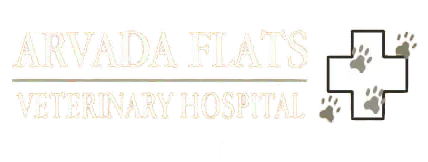Radiology- what is it and why is it important?
Radiology is a medical specialty that uses imaging to diagnose and treat diseases. There are multiple different diagnostic imaging tests that can be performed to aid in a diagnosis. The common imaging tests performed in veterinary medicine include radiographs (X-ray), ultrasound, computed tomography (CT), magnetic resonance imaging (MRI), and echocardiograms. So, what are each of these modalities and why are they used?
- Radiographs- are a black and white image produced on a sensitive plate or film by X-rays, gamma rays, or similar radiation. X-rays provide veterinarians with a global view of the abdomen, thorax (chest) and any bone changes. X-rays give a view of 5 basic features including air, fat, soft tissue (organs), bone, and metal. It is best used for viewing bone, although, some organs can be examined. Radiographs are the most common imaging tool used in veterinarian medicine. Often, these are recommend when your pet has been limping, coughing, vomiting/diarrhea or having blood in urine(evaluate for bladder stones). Dentistry is another area of veterinary medicine were radiographs are commonly used and aid in the diagnosis of many problems including periodontal/endodontic disease, odontoclastic resorptive lesions, bone disease, and missing/abnormally located teeth.
- Ultrasound- is a noninvasive and detailed test that uses high-frequency sound waves to look at organs and structures inside the body. Veterinarians use it to view the heart, blood vessels, gastrointestinal system, kidneys, liver, spleen, and bladder. It also views images of small structures including the adrenal glands, gallbladder and lymph nodes. If x-rays fail to give a definitive diagnosis, an ultrasound is the next imaging modality of choice to further evaluate for disease. Ultrasounds are recommended once every two years as a routine health screen.
- Computed tomography- also known as a CT scan or CAT scan, are detailed images of internal organs and bone that cannot be seen in conventional X-rays. CT scans discriminate between different tissue densities and avoids inherent problem of structures overlapping (superimposition). For this procedure, pets need to be super still in order to obtain the best diagnostic image. Therefore, pets typically have to be sedated or anesthetized for this procedure. CT scan are usually recommended for advanced orthopedic diseases or when imaging the skull and sinus cavities.
- Magnetic Resonance Imaging- MRI is a procedure that uses magnetism, radio waves, and computer to create pictures of areas inside the body. The MRI scanner is a tube surrounded by a giant circular magnet. The benefits of an MRI relate to its precise accuracy in detecting structural abnormalities of the body. Patients with metal implants or heart pacemakers cannot be scanned with MRI because of the effect of the magnet. In veterinary medicine, a MRI is best for viewing soft tissue structures including the brain, spinal cord, tendons, and ligaments. A MRI is often recommended for patients with seizures or trauma to the spinal cord to further evaluate for spinal disc disease (Intervertebral Disc Disease). Just like a CT scan, pets need to be anesthetized for this procedure.
- Echocardiogram- is a diagnostic test which uses ultrasound waves to make images of the heart chambers, valves, and surrounding structures. It can measure cardiac output and is able to test for fluid around the heart (pericardial effusion). It can also be used to detect abnormal anatomy or infections of the heart. Cardiologists, or heart specialists, are trained to evaluate these images to assess heart function and provide a report of the results. These reports help aim in the best treatment options for a patient. Veterinarians will recommend an echocardiogram if a heart murmur is detected on your pet during a physical exam to further evaluate for heart disease.
Author: Dr. Val Bender, DVM
